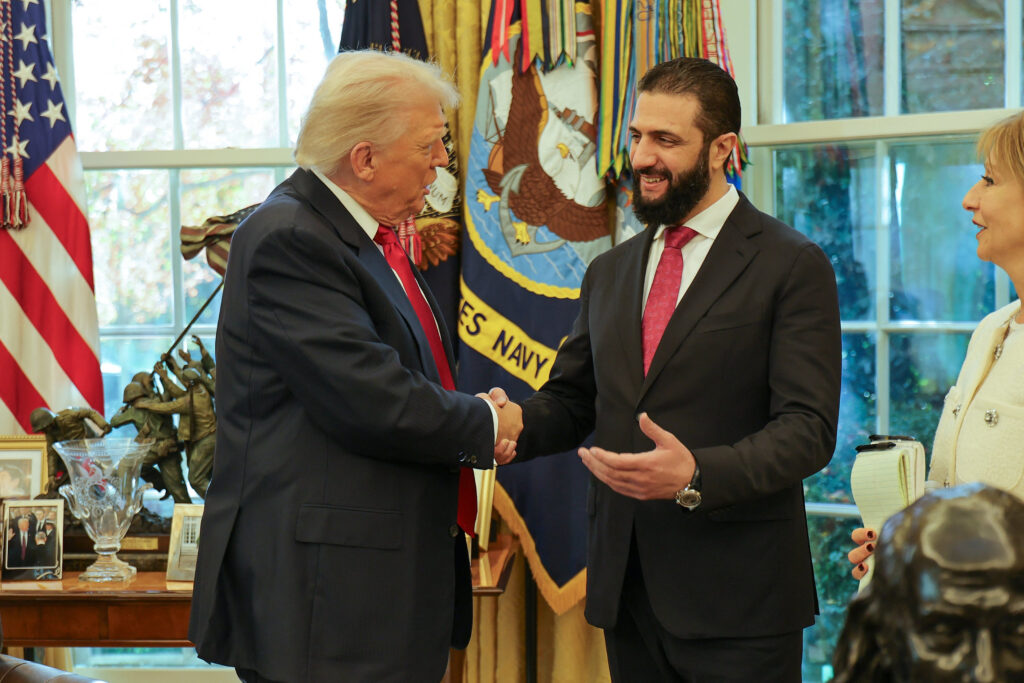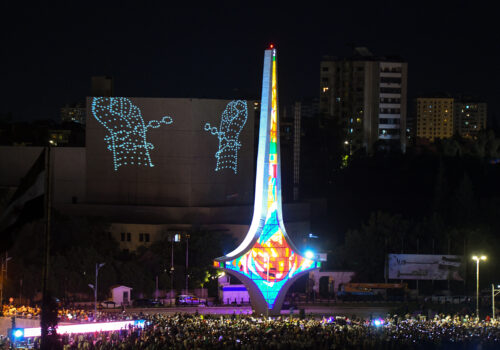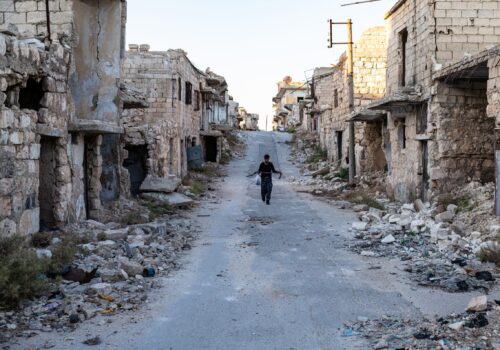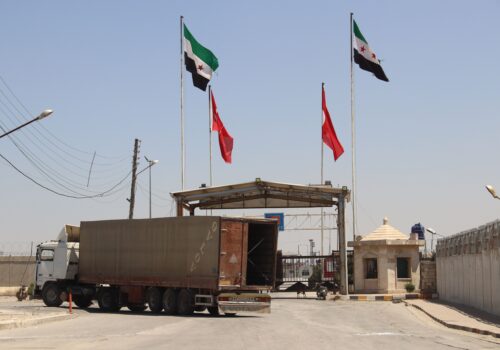He’s gone from the White House’s wanted list to its guest list. On Monday, US President Donald Trump hosted Syrian President Ahmed al-Sharaa in the Oval Office, marking the first-ever White House visit from a Syrian head of state. Ahead of the meeting, the Trump administration lifted US sanctions and a terrorist designation on the Syrian president in the latest moves toward a US opening to Damascus since al-Sharaa led the rebel offensive that ousted the Assad regime last December. After the meeting, the Trump administration agreed to suspend the imposition of US sanctions under the Caesar Syria Civilian Protection Act for 180 days, and reporting suggests that Syria will join the Global Coalition to Defeat ISIS. Below, two experts share their views on the biggest outcomes from the visit.
Arwa Damon: Syria’s biggest challenges were left unsaid
When it comes to the al-Sharaa-Trump meeting, what was unsaid, or at least unsaid publicly, is worth taking into consideration. What, if any, conversation was had about integrating the Kurdish-led Syrian Democratic Forces (SDF)? The SDF was once the United States’ main ally on the ground in the fight against the Islamic State of Iraq and al-Sham (ISIS), and the United States is the lead actor in trying to broker some sort of a deal, but the SDF remains at odds with Damascus despite US public statements that negotiations are moving in the right direction. Syria joining the anti-ISIS coalition is a positive move for sure, not just in terms of bolstering Syria’s position among Western nations, but it risks being rather messy without some sort of agreement between the SDF and Damascus.
What, if any, conversations were had about Israel and the threat that it poses to Syria’s stability? Israel occupied a portion of Syria’s Golan Heights back in 1967, and since 2024 it has used al-Sharaa’s toppling of former dictator Bashar al-Assad as an excuse to grab more land and carry out extensive bombing campaigns that Israel says are to protect itself from the threat posed by the new Syrian leadership and to protect the Druze minority.
However, one could also argue that keeping both these key issues out of the conversation is also a strategic move, given how delicate the Syria-US relationship remains and how quickly the Trump pendulum swings from friend to foe.
It is also interesting to note al-Sharaa’s skill in meeting with former enemies. In mid-October he went to Moscow, burying yet another hatchet with the Russians, exchanging ongoing access to their military bases and port for energy, oil, and infrastructure deals.
—Arwa Damon is a nonresident senior fellow at the Atlantic Council’s Rafik Hariri Center for the Middle East and president and founder of the International Network for Aid, Relief, and Assistance (INARA).
Ömer Özkizilcik: Syria’s biggest achievement from the visit was legitimacy
Al-Sharaa’s visit to the White House is expected to advance several political, economic, and military goals, but perhaps the most significant achievement for Syria will be legitimacy. Since taking power, the Syrian government has invested an immense amount of time and resources in securing international recognition. When al-Sharaa met Trump in Riyadh in May and Trump promised to lift sanctions on Syria, it marked a milestone victory for the country.
However, since that meeting, various Syrian and non-Syrian actors opposing the new government have worked persistently to undermine the president’s legitimacy. Most visibly, the Syrian Democratic Forces, dominated by the Kurdish People’s Defense Units (YPG), have stalled the March 10 agreement between the SDF and the Syrian government meant to integrate the former into the Syrian state. Following the violence in the Druze-majority region of Sweida, some actors renewed their hopes that Damascus would drift back into the realm of illegitimacy.
Yet the visit to the White House sends a clear signal. Al-Sharaa has achieved a level of international legitimacy no other Syrian president has reached before him. By joining the anti-ISIS coalition, al-Sharaa further consolidates this trajectory. In doing so, he completes his decade-long journey from being a wanted terrorist to becoming a recognized partner in the fight against terrorism.
This international recognition will not only strengthen al-Sharaa’s position domestically within Syria but will also bolster his standing in regional politics, particularly when it comes to pursuing a new security arrangement with Israel—something akin to the 1974 disengagement agreement. With the Caesar sanctions expected to be lifted soon, al-Sharaa will also gain the opportunity to attract foreign investments into the Syrian economy, a cornerstone of his broader vision for Syria’s reconstruction. This will provide al-Sharaa with additional space to proceed with the five-year transitional period inside Syria. He stated that he aims to bolster his domestic legitimacy through popular elections.
—Ömer Özkizilcik is a nonresident fellow for the Syria Project in the Atlantic Council’s Middle East Programs. He is an Ankara-based analyst of Turkish foreign policy, counterterrorism, and military affairs.
Further reading
Thu, Sep 4, 2025
Dispatches from Damascus: The state of Syria’s postwar transition nine months after Assad’s fall
New Atlanticist By
On a recent trip to the Syrian capital, Atlantic Council experts took note of how far the country has come since the Assad regime’s fall and what still needs to happen to secure peace and prosperity.
Mon, Sep 22, 2025
Expanding Syria’s multilateral development bank engagement
Issue Brief By
Estimates of Syria’s post-civil war cost of rebuilding range from $250 billion to $400 billion. To help finance reconstruction and development, Syria’s transitional government should expand its partnerships with international financial institutions (IFIs) and multilateral development banks (MDBs), as these institutions can play a key role in mobilizing global capital.
Wed, Sep 24, 2025
Is a new era of Turkey-Syria economic engagement on the horizon?
MENASource By
The convergence of Turkey's and the Gulf's economic strategies in Syria presents an opportunity for Washington.
Image: US President Donald Trump (left) receives Syrian President Ahmad al Sharaa at the White House, in Washington, DC, United States of America, on November 10, 2025. (Photo by Balkis Press/ABACAPRESS.COM via Reuters Connect.)




